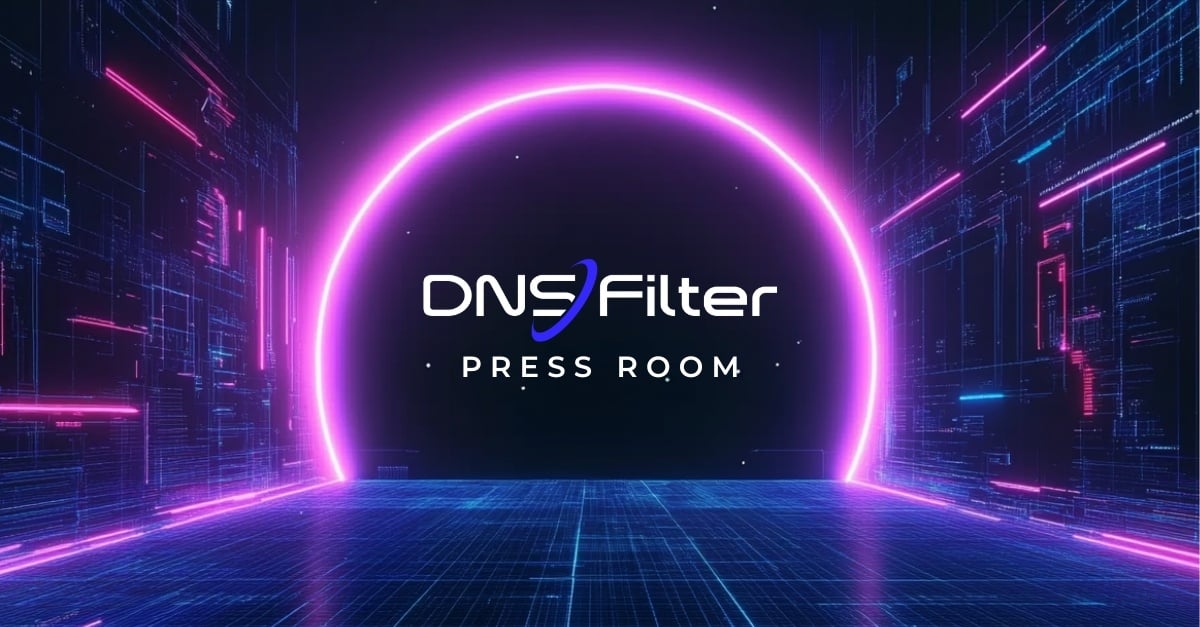DNSFilter Press Room
Old Tricks, New Domains: Why Bad Actors Love DNS
New domains are just one way bad actors continue to take advantage of DNS for attacks. The good news? There are ways to fight back. Learn more on Dark Reading.

DNSFILTER IN THE NEWS
Old Tricks, New Domains: Why Bad Actors Love DNSDark Reading
10 Best Web Content Filtering Solutions 2025GB Hackers
Fake "I’m not a robot" CAPTCHAs might cost you your bitcoinCybernews
Hackers Using Fake Captchas to Spread Lumma Stealer MalwareDecrypt
How Organizations Can Prepare For Machine Identity AttacksForbes
Are You Managing Your AI or Just Prompting It?Medium
The Latest DNS Threat Landscape: Why CISOs Must Rethink Blocking StrategiesCircleID
2025 Cybersecurity Winners - Best Network Security SolutionTech Ascension Awards
Client Expectations vs Reality: An MSP's Survival GuideMSP Insider Show
DNSFilter at Black Hat USA 2025: AI-Powered Protective DNS Tackles ShadowAI and Zero-Day Threats 10 Days Faster Than CompetitorsVMBlog
Come Phish With Me: The Growing Problem With Phishing-As-A-ServiceMediaPost
Building a Blueprint for Improved Security Outcomes with Zero TrustForbes
AI vs. AI: As AI-Driven Threats Abound, It's Time to Make AI Part Of Your DNS Security ArsenalCyber Defense Magazine
Cybercrime-as-a-Service Is Scaling — Are MSSPs Ready?MSSP Alert
Best Practices for Defeating Deepfake Candidate FraudDice
Companies Increasingly Block Adult Content and Torrent Sites, DNSFilter Data ShowsThe Fast Mode
Think before you click: Experts warn email "Unsubscribe" links pose security risksTechSpot
New Warning About Hitting 'Unsubscribe' on Unwanted EmailsToday
Think Twice Before You Click ‘Unsubscribe’The Wall Street Journal
Prescription Vs. OTC: Which One Will Meet Your Security Needs?Forbes
How To Reduce Insider Threats (Without Impacting Efficiency)Forbes
Companies are increasingly limiting access to AI tools: millions of DNS queries blockedCyber News
How to Build a Top-Tier Perks and Benefits Program According to 10 of Our ‘Best Places to Work’ WinnersBuilt In
How New Domains are Driving DNS-based AttacksCircleID
Leader Spotlight: Aligning customer feedback and expectations, with Ryan PoppaLogRocket
Generative AI for DNS-Powered Security FilteringThe Fast Mode
If Einstein Was Your CISO: Cybersecurity Lessons From Words Of WisdomForbes
Fast Flux: A National Security ThreatCISA
Malicious Plays: Network Security Challenges During Major Sports EventsCybersecurity Insiders
Recruiting Innovations to Overcome the Cybersecurity Skills GapMSSPAlert







